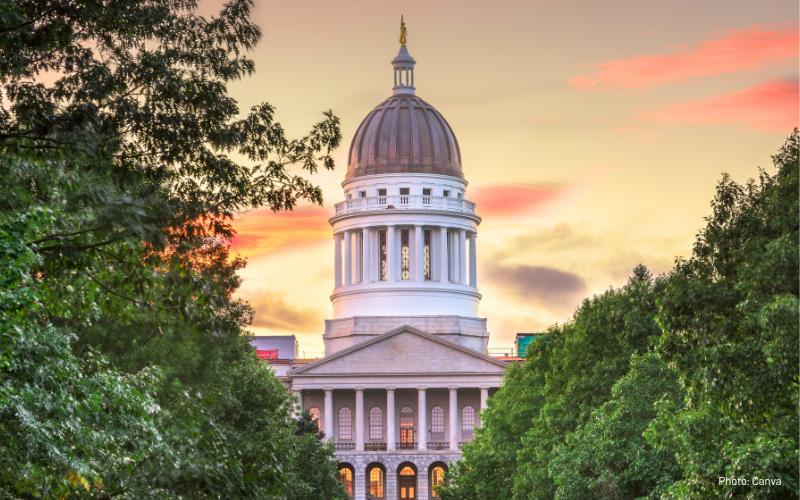
An environmental justice law for Maine is long overdue. Help us take action to get this bill across the finish line. Photo: via Canva.
What’s at Stake?
From dangerous storm flooding to extreme heat, climate change impacts communities in Maine already. But not everyone faces those threats equally. Low-income residents, populations of color, and historically underserved communities get hit first and worst. The reason? Years of discriminatory laws and policies have silenced them when making decisions affecting their own lives. Yet, while our elected officials have long recognized these disparities, our state lacks the legal safeguards to address them. A Maine environmental justice law offers a solution.
Environmental justice laws create a legal framework to address and rectify disproportionate environmental and climate harm. These laws aim to ensure all individuals, regardless of race, income, or socio-economic status, have equal protection from environmental hazards. They also create a legal process to guarantee fair and inclusive participation in the creation of environmental policies and programs.
But while other New England states – including Vermont and Massachusetts – have already passed environmental justice laws, Maine has lagged. It’s time for our state to start catching up.
CLF in Action
CLF is working to pass an environmental justice law in Maine.
In 2021, CLF worked with legislators to pass a bill requiring the Mills administration to study how to incorporate equity in critical decision-making processes. A year later, the Governor’s Office of Policy Innovation and the Future released its report with recommendations to pass an environmental justice bill. In response, Speaker Rachel Talbot Ross, along with other legislators, sponsored LD 1621 “An Act Regarding Environmental Justice.” CLF and our partners collaborated with legislators to present a bill to advance environmental justice in Maine.
The act sets clear definitions for key concepts related to communities most affected by environmental impacts. Specifically, it defines environmental justice and frontline communities. It also details what it means for these communities to receive fair treatment and have meaningful participation in the decisions made by Maine’s Environmental Protection Department. These definitions will create a shared understanding of which communities face the harshest impacts of climate change. They will also help increase transparency and ensure all communities have access to the same processes – when addressing the climate crisis and other environmental issues.
The bill also requires the Department to develop criteria to decide which communities in Maine qualify as environmental justice populations – and thus, should have fair and equitable access to the Department’s decision-making processes. In developing these criteria, the Department must consider income, race, ethnicity, and language proficiency.
The Department also must ensure fair and equitable access to decision-making processes for environmental justice populations and frontline communities. For example, when a landfill or other polluting facility is proposed near a low-income neighborhood or a community of color, the impacted communities will have a chance for input. They will have the opportunity to meaningfully voice their opinions and concerns. This means they get a say on whether, or under what conditions, the facility could move forward.
Finally, the proposed bill recognizes the need to fund this initiative to support the work of clerks, facilitators, and other experts. These people will play a critical role in overseeing the implementation of this law. And they will take charge for holding the state accountable to environmental justice communities.
Progress
Last year, the bill gained momentum but did not receive the funds needed to get enacted. CLF is working with partners and legislators to ensure this much-needed law receives funding from the appropriations committee this session. Enacting this law requires less than half a million dollars – a small price to pay, when we consider the toll climate risk, extreme weather, and other environmental harms have already taken on our communities.
Next Steps
This year, “An Act Regarding Environmental Justice” will move again through the appropriations and budget processes. CLF and our partners are pushing for full funding for this critical legislation. You can help, too. Tell your elected officials that you want to see this bill move forward and receive full funding. Together, we can guarantee no Mainer gets left behind in the fight against environmental and climate harm.



